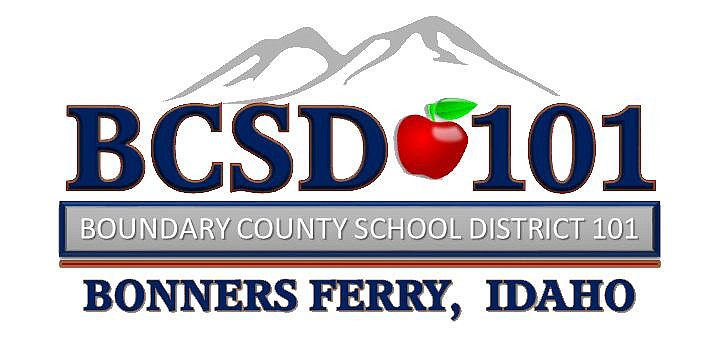BCSD maintenance decisions and funding options tabled until after March 8 election
BONNERS FERRY — The Boundary County School District is pausing discussions of maintenance issues and funding options through the Elementary and Secondary School Emergency Relief Federal Funding (ESSR funds) and American Rescue Plan Act funds (ARPA) until after the March 8 election.
Mary Fioravanti, the new board trustee from Moyie Springs, asked to pause the agenda item of maintenance until she could do a presentation.
ARPA was signed into law on March 11, 2021, and provides $350 billion in additional funding for state and local governments. ARPA funds are used to fight COVID-19 and support families and businesses struggling with its public health and economic impacts; maintain vital public services, even amid declines in revenue resulting from the crisis; build a strong, resilient, and equitable recovery by making investments that support long-term growth and opportunity, according to United States Department of Treasury officials.
Since March 2020, the federal government has passed three relief packages in response to the COVID-19 pandemic that includes unprecedented support for K–12 schools, known as ESSR funds. A third phase of funding was passed in March 2021 and will come through in September 2023 with a total of $126 billion to be distributed to American schools.
Fioravanti said she opposes the district receiving ESSR III funds and ARPA for the district due to the language written in the Executive Order 14000, under Section 2 of Agency Roles and Responsibilities.
She said on the surface the funds seemed fine, but upon further investigation, she has concerns that if the district is not in compliance with federal orders that they may face legal trouble by the federal government.
Board members and BCSD Superintendent Jan Bayer clarified that BCSD has not entered into a legal agreement with the federal government, but the state of Idaho has and the Department of Education is the middle-man. If the feds were to require payment back for funds given, the district would not be responsible for the funds, but the state.
Fioravanti said that data is the new currency as social media companies provide free services, but data collection is the form of payment indirectly. She said due to this and the rules of ARPA, she is concerned that the federal government could require that BCSD provide them with student data.
Fioravanti proposed the board establish a committee to explore the topic.
“If non-compliance with requirements, regulations, guidance, or any recording or other program requirements the Treasury may impose additional conditions for future awards or take other remedies in case of violation regarding use of funds previous payments shall be subject to recoupment,” Fioravanti said. “So, if we somehow violate any of the guidance then they can take back the money. […] And there are 60 days to return the money.”
She said she believes it would constitute a debt to the federal government and that the district would have to pay back the $3.5 million in funding that they have accepted.
Bayer clarified that the state of Idaho would have to pay all that back, since the state signs these agreements, not the BCSD. The district writes reports of how the funds are spent and the state signs off on it, Bayer said.
“The state has already approved the award and they sign for these awards and then they distribute the funds to the BCSD and other government agencies,” Bayer said.
“If the state is in that situation then it’s on them, but it doesn’t change the fact that the federal government has access to student data,” Fioravanti said.
“We don’t upload any student data,” Bayer said. “We couldn't provide that day because we don't have it.”
Bayer said the only way the district would know if a student is vaccinated is if a parent told district officials.
Rae said sharing student information would violate federal privacy law and that data is not even available to the state.
“To be perfectly honest, if the federal government wanted that information, they would get that information,” Weaver said.
Another issue Fioravanti brought forward was BCSD using newly printed money for funds that is adding to inflation.
Trustee Teresa Rae agreed that the new money being added to the economy is printed and is creating inflation which is bad for the economy, individuals, business and school districts.
“If we don’t spend [the ESSER] money someone else will. But inflation will continue […] and somebody will end up paying for it in the future,” Rae said.
“The question is do our taxpayers want to pay more instead of taking federal dollars,” said Trustee Nicki Weaver.
Fioravanti suggested using more money from the logging fund for maintenance costs instead of taking federal dollars.
Bayer said it is board policy to keep that account at $600,000 in case of a catastrophic failure of one of the schools.
The bond was originally going to be for $18 million but with the help of federal funds only $16 million is being asked for.
Trustee Candy Kelly thanked Fioravanti for her research and said the district will look into funding for maintenance projects after the fate of the March 8 bond election is known.
The BCSD has had two community open houses at Valley View Elementary to where community members have been walked through the school and shown the safety hazards and concerns with the 73-year-old building.
To list a few, kindergarteners have to cross a street several times a day for lunch, recess and learning. There are plumbing issues, such as every kitchen sink does not drain, and toilets and sinks are not directly connected to the sewer main. The building material is cinder blocks, not cement blocks with aggregates, but true cinder blocks make heating the building difficult.
A community bond meeting is scheduled at 1 p.m. today, March 3, at the United Methodist Church.
In-person absentee voting ends Friday, March 4, with Election Day on Tuesday, March 8.

